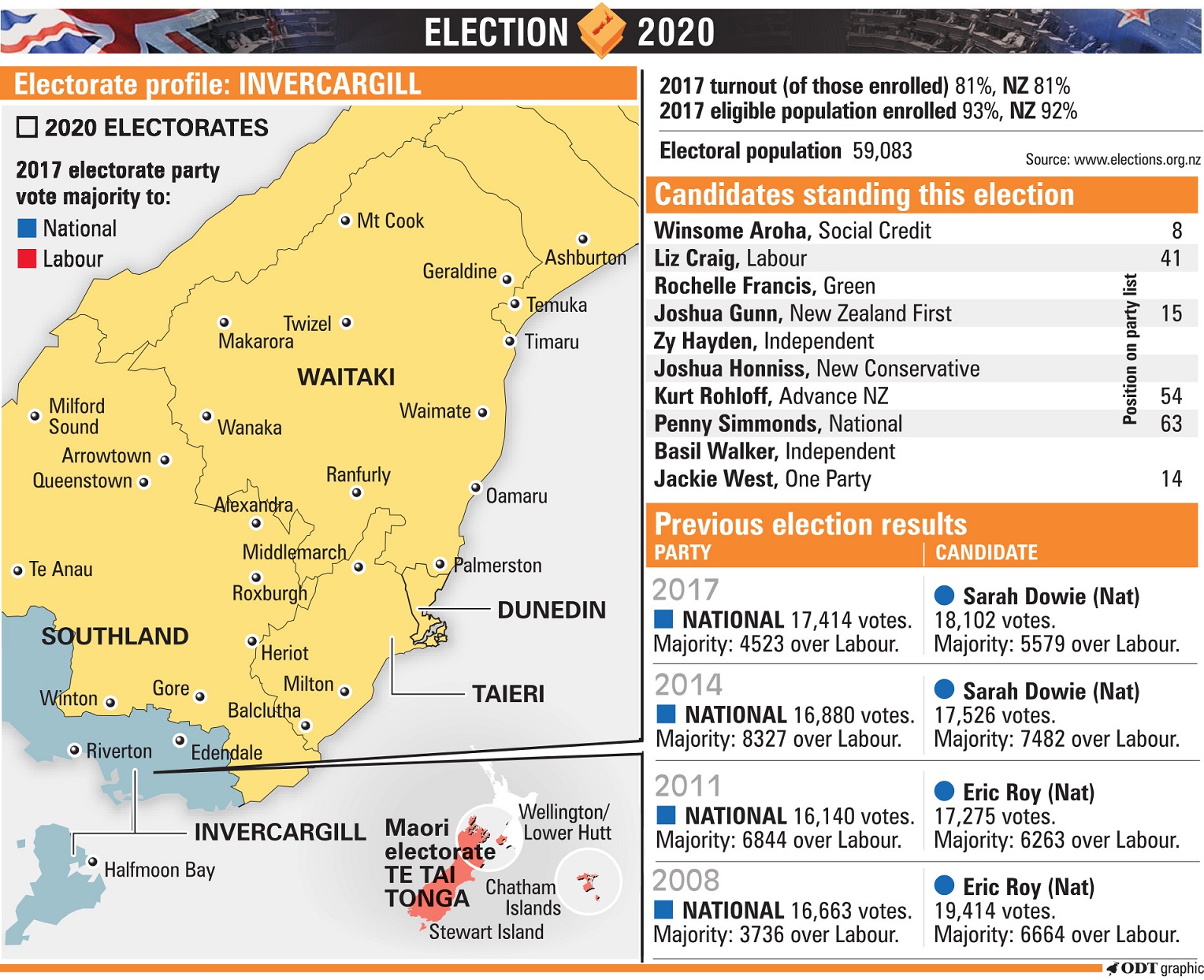
No matter how the vote shapes up on October 17, the electorate will have a new MP, who will have to hit the ground running.
Next year’s likely closure of the Tiwai Point aluminium smelter will affect thousands of jobs and has already sparked a wave of economic uncertainty.
Another Invercargill institution, the Southern Institute of Technology (SIT), has also been a major talking point thanks to tertiary reforms.
National has vowed that if it is elected it will scrap the changes, which included the creation of mega-entity the New Zealand Institute of Skills and Technology.
The changes were deeply unpopular in the South, Invercargill Mayor Sir Tim Shadbolt saying the polytechnic was being "punished for being successful".
But Labour has said the merger created opportunities for strongly performing institutions such as SIT.
The electorate, home to visitor hot spots such as Bluff and Stewart Island, has also been hit by the drop in international tourism as a result of Covid-19.
Invercargill has been a National seat since 2005, when Eric Roy took over from retiring Labour MP Mark Peck.
Mr Roy was succeeded by Sarah Dowie, who retires at the election after two terms.
Her legacy was tarnished after she was caught up in the Jami-Lee Ross scandal, after admitting she had an affair with her then-colleague.
She was investigated and later cleared by police over a text message she sent stating Mr Ross "deserved to die".
In her valedictory speech, she came out swinging at media coverage of the issue.
"Yes, we are representatives and should take responsibility for poor behaviour, but we are not elected as angels."
It will be hoped her successor Penny Simmonds will have a smoother run.
The long-term SIT chief executive has been a vocal opponent of the Government’s changes to the tertiary education sector, and has also cited farming and business concerns as reasons for standing.
Liz Craig is standing for Labour again, after one term as a list MP.
Dr Craig is on both the health and the environment select committees, and has had a quiet but solid start to political life.
She dropped 12 places on the party list this year, from number 31 to 43. But given Labour’s strong polling, she would likely return to Parliament on the list if her electorate bid failed.
She had a 5579-majority over Dr Craig at the past election.
Barring a massive surge in party popularity, it is unlikely any of the other candidates for the seat will enter Parliament this election.
The most colourful candidate is likely to be Queenstown businessman Basil Walker.
Mr Walker was originally selected as Act New Zealand’s Southland candidate. But after objecting to what he considered curbing of his free speech by the party, he dropped his Southland bid and announced he would stand as an independent in Invercargill instead.
The Government’s electorate profile for the area revealed some interesting tidbits.
For example, the electorate has the highest share of households that use coal as their primary heating fuel (31.4%), and the third-highest share of people who are regular smokers (18.2%).
And 87.8% of people in the electorate were born in New Zealand, while 12.2% were born overseas — respectively, the third-highest and third-lowest proportions found in any general electorate.












